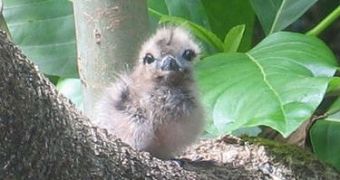Scientists have wondered why do most animal females cheat on their pair and to have an answer, they conducted a ten-year study on the matter. Researchers at the University of East Anglia published yesterday a study that shows that female birds infidelity increases their offspring’s immune resistance and survival.
In many animals, females choose a 'social' mate that helps raise the young, but in most cases these offspring are engendered by other males. DNA fingerprinting established this phenomenon but did not explain at first why do females do it, especially when these other males will not raise the offspring.
While studying female Seychelles warbler birds, scientists observed that they often are inseminated by other males and this is what increases their offspring’s genetic quality. Ever since 1997, more than 97 percent of warblers from the Cousin Island in Seychelles were ringed, blood samples were drawn and their breeding attempts were followed.
Scientists actually managed to monitor 160 birds hatched on the island between 1997 and 1999, over a period of ten years. They observed that females chose to pair up with males that had a weaker diversity of disease-detecting genes (major histocompatibility complex or MHC) and be fertilized by extra-pair males, with a higher diversity. The resulting offspring had a higher genetic diversity of disease-detecting genes, as they would have had if they had been fathered by the pair male.
40 percent of the offspring are conceived by another male than the pair, still their resistance to disease is no higher than the average. Researchers found that MHC genes' diversity was linked to juvenile survival and a MHC diversity higher that the average doubled the life-time. Also, offspring with a rare gene variant (Ase-ua4) had a lifespan five times longer than others, even if these birds did not necessarily have a greater MHC diversity.
Dr David Richardson (UEA) published his research “MHC-dependent survival in a wild population: evidence for hidden genetic benefits gained through extra-pair fertilizations” in Molecular Ecology, yesterday. He explains: “We first tested whether extra-pair offspring have a survival advantage compared to within-pair offspring. Then we tested whether there are genetic benefits to the patterns of the MHC-dependent extra-pair fertilizations observed in this species.”
“We did not find any evidence for genetic benefits of extra-pair fertilizations per se, as on average extra-and within-pair offspring survived equally well. However, by not being faithful to a pair male with low MHC diversity, females are ensuring that their offspring do not end up with below average levels of MHC diversity and therefore lower survival.
“We have shown that the association between survival and MHC diversity leveled off with increasing diversity, so choosing males with above average MHC diversity would not have resulted in any additional fitness benefits for the offspring. One thing that remains unknown however, is what mechanism drives the patterns of MHC-dependent extra-pair mate choice. Experiments are needed to determine whether females actively choose more diverse MHC males or whether other factors like male-male competition or sperm competition play a role.”

 14 DAY TRIAL //
14 DAY TRIAL //